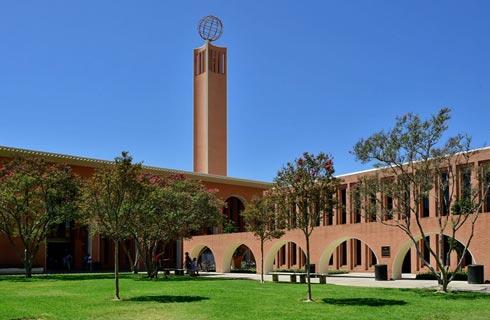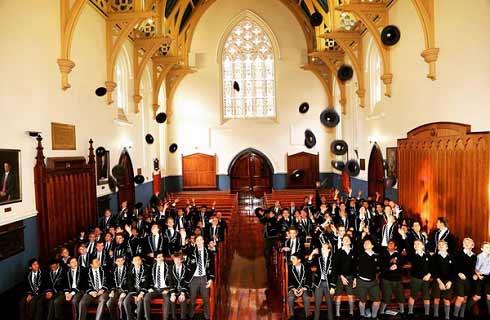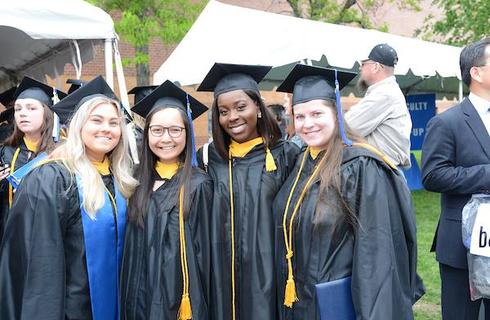音乐理论哲学博士
Doctor of Philosophy in Music - Music Theory

学历文凭
Ph.D.

专业院系
Department of Music

开学时间

课程时长

课程学费

国际学生入学条件
IDP—雅思考试联合主办方

雅思考试总分
7.0
- 雅思总分:7
- 托福网考总分:93
- 托福笔试总分:580
- 其他语言考试:Certificate of Proficiency in English (COPE) - Required score - 76 (with at least 22 in each component and 32 in the writing component)
CRICOS代码:
申请截止日期: 请与IDP联系 以获取详细信息。
课程简介
A taught graduate degree program at the Faculty of Music was inaugurated in 1954. Graduate studies in music theory combines scholarly excellence, the intimate scale of the program and close ties to Musicology and Ethnomusicology to make for a vibrant, friendly, and intellectually engaging environment that attracts top-level students pursuing the course-intensive MA and the research-oriented PhD in music theory. Graduate students also benefit from the regular presence of guest speakers at the biweekly colloquium series, graduate student roundtables and special events such as the annual Form Forum. All graduate students in music theory are supported by UofT’s generous standard funding package and have the opportunity to gain professional experience through teaching and research assistantships.Music Theory is the study of musical structure. We learn how to construct music in historic and contemporary styles; how to deconstruct it through analysis and analytical modeling; and how to understand it through hermeneutic and historically informed interpretation. The music theory faculty at UofT is known for its strengths in Schenkerian analysis, musical form, theories of rhythm and meter, nineteenth-century music, and the music of the Second Viennese School.All undergraduate students build musical fluency through two years of core courses in music theory, musicianship, and other skills. At the advanced undergraduate level, Music Theory features a variety of specialized courses, offering students the possibility to graduate with a major in Music History and Theory within the Mus.Bac. program. This major is designed with considerable flexibility to accommodate students’ individual interests: our students can elect to specialize in either Music History or Music Theory, or design a general major drawing from both areas. Another option is to combine this major with a minor in Composition. At the graduate level, the combination of scholarly excellence, the intimate scale of the program, and the close ties to Musicology and Ethnomusicology make for a vibrant, friendly, and intellectually engaging environment that attracts top-level students pursuing the course-intensive MA and the research-oriented PhD in music theory. Graduate students also benefit from the regular presence of guest speakers, be it at the biweekly colloquium series, graduate student roundtables, or special events such as the annual Form Forum. All graduate students in music theory are supported by UofT’s generous standard funding package and have the opportunity to gain professional experience through teaching and research assistantships.
相关申请
 预科
预科 奖学金
奖学金 实习机会
实习机会 在校学习
在校学习 跨境学习
跨境学习 校园授课-线上开始
校园授课-线上开始 在线/远程学习
在线/远程学习
开学时间&学费
学费信息仅供参考,请与IDP联系以获取详细信息
| 开学时间 | 时长 | 学费 | 地点 |
|---|
学校排名

世界排名21
数据源:
泰晤士高等教育世界大学排名
关于多伦多大学

多伦多大学(University of Toronto),始建于1827年,坐落在加拿大的第一大城市多伦多,是加拿大的一所顶尖学府,亦为加拿大传统四大校之一。安大略省政府及议会环绕在市中心的女王公园四周,现已发展成为一所“一主两翼”格局的世界知名研究性大学--坐落于市中心的圣乔治校区(St. George),历史最为悠久,与3个更小的大学联盟并有享有七大学院制,与十座教学医院有着密切关系;东西向延伸至世嘉堡与密西沙加,UTSC有着乡村般的风光,风景别致,搭乘TTC一小时路程;UTM则是在西边,有校车往返。在学术及研究方面,多伦多大学一直处于领先地位。其经费、捐款、国家教授奖项、研究出版规模和藏书量皆为加拿大之首。多伦多大学出版社在加拿大乃至全北美影响深远。实行独立书院制的学府,荣获诺贝尔奖的教授人数是加拿大最多的。维多利亚学院是其最富有的学院之一 提供更多奖学金和相关设施。多伦多大学亦为美国大学协会中仅有的两所非美国学府之一。多伦多大学每年发表的科研论文数量在北美仅次于哈佛大学,引用数量位居世界前五。主要贡献:干细胞及胰岛素的发现,电子起搏器、多点触摸技术、电子显微镜、抗荷服的发明和发展,NP完全理论,以及发现首个经核证的黑洞。
本校相关课程
其他相关课程

Master of Music in Percussion Performance
 科罗拉多大学博尔德分校
科罗拉多大学博尔德分校学历文凭
Masters Degree
开学日期
课程费用总额


音乐制作与工程大专文凭
 新斯科舍社区学院
新斯科舍社区学院学历文凭
Bachelor Degree
开学日期
课程费用总额


音乐教育学硕士
 杨百翰大学
杨百翰大学学历文凭
Masters Degree
开学日期
课程费用总额


音乐文学硕士
 鲍尔州立大学位
鲍尔州立大学位学历文凭
Masters Degree
开学日期
课程费用总额


音乐教育学学士-配音
 天普大学
天普大学泰晤士高等教育世界大学排名:459
学历文凭
Bachelor Degree
开学日期
课程费用总额


Bachelor of Music in Piano Performance (Pedagogy)
 奥克兰大学
奥克兰大学泰晤士高等教育世界大学排名:1347
学历文凭
Bachelor Degree
开学日期
课程费用总额
















